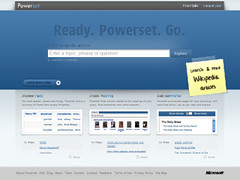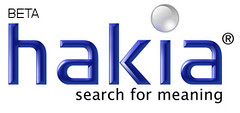 A question came in this week regarding search; specifically “Semantic Search.” What is it? What’s the value? And do I need to go to school to learn it?
A question came in this week regarding search; specifically “Semantic Search.” What is it? What’s the value? And do I need to go to school to learn it?
Let’s start this off quick and dirty. I’ll break this down in a few parts.
- Semantic Search vs. Typical Search
- My Top 3 Semantic Search Engines
Before I get started I ask that you please leave a comment with your thoughts and/or your own tool! I’d like to share your post with our audience!
Do you need to go to school to learn it?
No, but I would say subscribe to the blog to learn more about cutting edge search if you are slightly lost. Semantic search is simple at face value and for the purpose of your searching all you really need to understand is how it works and how you need to approach the system.
A semantic search works off of language, Meanings and discovery. The biggest differentiator to your normal search engines is that typical search engines search for keyword relevance and occurrence on a specific page or set of pages within websites. Semantic Search leverages real thoughts or language making it superior in locating relevant information for your search. Have you ever wondered what tags are and how they fit into the meaning?
A better way to understand the use of tags is that they identify content and create a road map to relevant and searchable information. In general, Semantic Search is the next gen search engine that only a few have been remotely successful with and a ton more are investing heavily in.
Check it out for yourself. Here are my top 3 that I encourage you to check out!

Powerset aims to narrow search results allowing you to aggregate, summarize and navigate information. Powerset is a Microsoft venture acquired 2008. Currently the search is limited to 3 areas all based off of Wikipedia.
Use: I used Powerset to search wikis each day. I have great success gathering intelligence, like client information, sales information etc.

Hakia in my estimation is by far one of the best if not the best available engines available. The results are relevant, they are fresh and updated and from what I have always found they are pulled from credible sources and are easier to cite if needed.
Use: Recruiting, Company searches, publications and quotations from executives

MiddleSpot.com is a search engine that allows you to visually search, edit and share your results in multiple workpads or spaces. I’ve previously had the opportunity to chat with one of the founders of MiddleSpot. You can read the interview HERE.
MiddleSpot is visually appealing and very relevant in it’s return.
Use: recruiting, intelligence and project sharing with groups
There you have it. Semantic Search explained and my top 3 Semantic Search tools (as of today, but probably different tomorrow)
Feel free to leave a comment with your favorite tool!
Need a Job – Check out our Newest Postings! CLICK HERE
By Noel Cocca
CEO/Founder RecruitingDaily and avid skier, coach and avid father of two trying to keep up with my altruistic wife. Producing at the sweet spot talent acquisition to create great content for the living breathing human beings in recruiting and hiring. I try to ease the biggest to smallest problems from start-ups to enterprise. Founder of RecruitingDaily and our merry band of rabble-rousers.
Recruit Smarter
Weekly news and industry insights delivered straight to your inbox.





